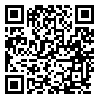Volume 13, Issue 54 (1-2020)
Research on Addiction 2020, 13(54): 47-66 |
Back to browse issues page
Download citation:
BibTeX | RIS | EndNote | Medlars | ProCite | Reference Manager | RefWorks
Send citation to:



BibTeX | RIS | EndNote | Medlars | ProCite | Reference Manager | RefWorks
Send citation to:
oji A, Heidari A, bakhtiarpour S, saraj khorami N. Comparison of the Effectiveness of matrix therapy and modern group reality therapy based on choice theory on resilience and social adjustment in methamphetamine-dependent men who are treated with buprenorphine. Research on Addiction 2020; 13 (54) :47-66
URL: http://etiadpajohi.ir/article-1-2016-en.html
URL: http://etiadpajohi.ir/article-1-2016-en.html
Islamic Azad University, Ahwaz-Iran
Abstract: (6634 Views)
Purpose:The purpose of this study was to compare the effectiveness of matrix treatment and modern group reality therapy based on choice theory on resilience and social adjustment in methamphetamine-dependent men who are treated with buprenorphine. Methods: The research was a experimental study with a pretest-posttest with control group. The statistical population of the study consisted of All meth-amphetamine-dependent men who received buprenorphine-preserving treatment and referred to addiction centers in Tehran in the winter of 1397. 45 participant were selected through purposive sampling and randomly assigned to two groups of experimental and a control group. In all three groups, patients' resilience and social adjustment were assessed through the Special questionnaires. The first group received matrix treatment therapy in 14 sessions, and the second group received 8 sessions of modern group reality therapy based on choice theory, but the third group did not receive training And were only under buprenorphine-preserving treatment. Then again, in the post-test, resilience and social adjustment were assessed for all three groups. Data were analyzed using multivariate covariance analysis. Results: The findings of the study showed that matrix therapy and group reality therapy were effective on the resilience and social adjustment of patients (p <0.01). Also, the difference in the effectiveness of the two treatments was significant (p <0.01). And matrix therapy was more effective than the reality therapy in both variables. Conclusion: Given the fact that the matrix model is a combination of cognitive-behavioral programs, coping skills, family education and community groups, it is recommended to be widely used in the treatment of patients with methamphetamine.
Keywords: buprenorphine, choice theory, group modern reality therapy, matrix treatment, methamphetamine, resiliency, social adjustment
Type of Study: Research |
Subject:
Special
Received: 2019/03/26 | Accepted: 2019/12/9 | Published: 2020/02/19
Received: 2019/03/26 | Accepted: 2019/12/9 | Published: 2020/02/19
| Rights and permissions | |
 |
This work is licensed under a Creative Commons Attribution-NonCommercial 4.0 International License. |





